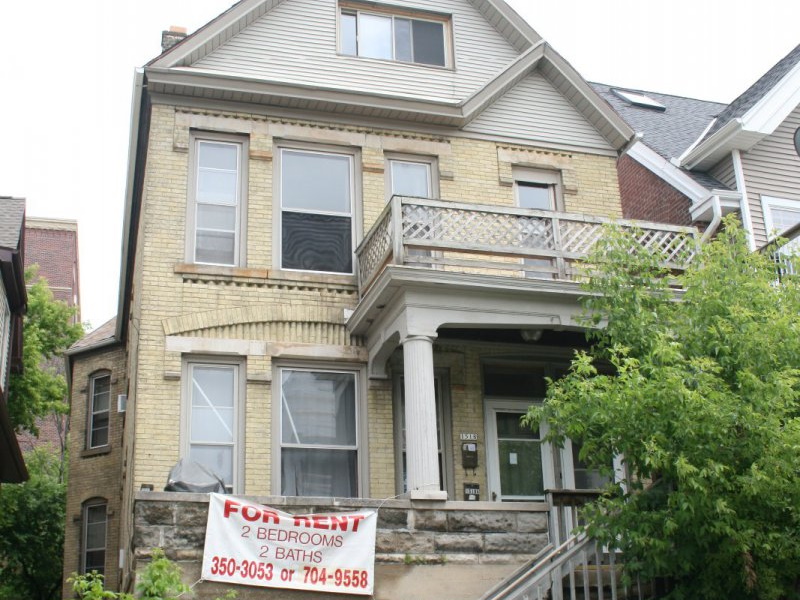Milwaukee Households Face Rising Rents
Median rent up $100 since 2019, worsening inequality.
Rent prices are up in the Milwaukee metro area, according to a recent report. A researcher says it’s worsening issues of inequality.
A report from the financial app Stessa found median rents in the Milwaukee-Waukesha area have gone up by around $100 since 2019.
According to a 2018 Wisconsin Policy Forum report based on Census Bureau data, 50.6 percent of the area’s households at the time rented rather than owned their homes.
Yaidi Cancel Martinez, a social scientist with University of Wisconsin-Milwaukee’s Center for Economic Development, said low rental availability and increased demand have both potentially driven up prices. Low home supplies and increasing home prices also play a role.
“That is putting some potential buyers to stay a little bit longer in the rental market, so that then can constrain that supply,” Martinez said. “People are staying a little bit longer (whether they) want to stay longer in the rental market or they have to.”
Inflation and increased costs of living are also making a difference, especially for the area’s marginalized and low-earning households. Martinez’s research finds incomes haven’t kept up with the cost of rent in the region.
“For … moderate and low income households, there’s still a lot of stress, you know, in terms of affording their home and trying to afford other things as well,” Martinez said.
‘No greater crisis’
Where help exists, it often only goes so far. Andy Heidt, the housing policy and programs manager for the Wisconsin Community Action Program Association, or WISCAP, said the Wisconsin Emergency Rent Assistance program has an eligibility limit of 18 months.
He said rent assistance is “both easy and hard.” According to the National Low Income Housing Coalition, more than 187,000 renter households in Wisconsin are extremely low income.
Heidt said different landlords are resolving issues with tenants in different ways.
“There are definitely landlords with empathy and understanding,” Heidt said. “They know their tenants, they’re taking chances on their tenants, they’ll wait for their tenants who are in a temporary crisis to navigate the support and services to hopefully be able to stay in their units … you flip the coin over, and there’s the rapacity, greed, turmoil, intention that informs so many aspects of our life in this day and age.”
Martinez said systemic solutions depend on creating a better supply of affordable homes, as well as ensuring wages keep up with the cost of living.
“Housing is a basic human right,” Martinez said. “When we’re trying to ensure that we can pay for rent or pay for our home, it’s very important.”
Heidt said WISCAP is engaging in work to help people stay in their homes in the short term while creating a better stock of affordable housing across the state.
“We’ve got our hands full,” Heidt said. “We’re really scared, because as we come out of this pandemic, the rents are so much higher.”
Heidt said reckoning with income inequality and ensuring the availability of stable housing will also help ease the troubles marginalized groups face.
Within Milwaukee County, rent trends can vary from city to city.
In Milwaukee proper, data from rent.com shows rent prices down from last year to this year, with the decline varying from 4 percent for studio apartments to as much as 24 percent for a three-bedroom apartment. Meanwhile, suburban areas have seen some average rents rise dramatically. According to rent.com’s data, average studio rents in Wauwatosa have risen by almost 90 percent year-to-year.
But Martinez cautions those sorts of reports should be taken with a grain of salt.
“They base the prices and the research on their listings,” Martinez said. “It’s not capturing the whole picture of the rental market.”
Martinez said she doesn’t expect rent prices to increase at “an exorbitant pace” in the near future.
Heidt said there isn’t a one-size-fits-all approach to reckoning with housing issues.
“We have to be bold, innovative, collaborative and not afraid to change if what we’re doing isn’t working,” Heidt said. “If we fail, we learn from those failures, get up and try something else that has to work for these households, because the stakes are too high.”
Listen to the WPR report here.
Milwaukee rental households deal with rising rent costs was originally published by Wisconsin Public Radio.























Joe Biden and Tammy Baldwin will blame Vladimir Putin for the rising cost of housing in the U.S. …. Problem solved.
Last year in West Milwaukee my rent went up $110 a month and this year another $20. I share an apartment so it is not so bad. My daughter however, is a single mom and now she is being forced out. She works a full time job making $16-$17 an hour and still struggles to pay rent, day care, gas, etc. So sad…